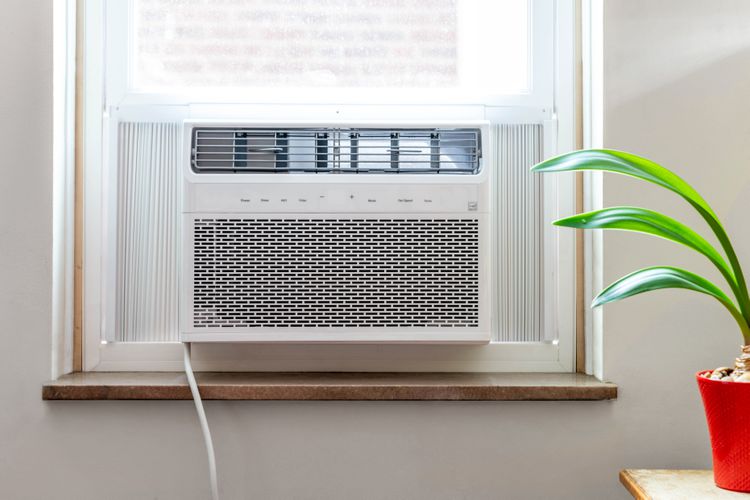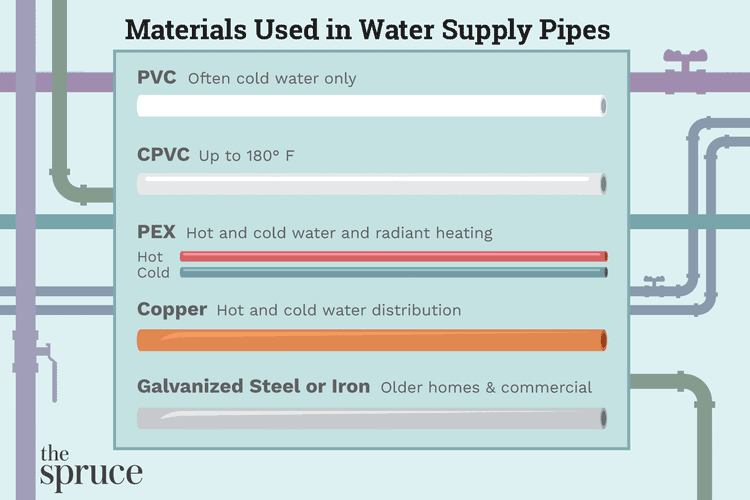With more than twenty years of practical experience in renovating, repairing, and enhancing residences, Lee has been offering home improvement guidance for several years.

On scorching, hot days, there’s nothing quite like lounging in front of a refreshing air conditioner. These appliances allow us to enjoy a comfortable indoor environment during the warm spring and summer seasons.
One of the drawbacks of having an air conditioner is the challenge of its disposal. We have moved beyond the era when it was acceptable, both morally and legally, to simply throw an A/C unit in the garbage.
Is it truly as detrimental as it seems, and what are the reasons behind it? If it is, what is the proper method for disposing of these large appliances?
Contents
The Importance of Proper Disposal of Air Conditioners
Getting rid of an air conditioning unit involves discarding approximately 65 pounds of various materials, including plastic, copper, aluminum, stainless steel, and several other non-biodegradable substances. If your air conditioner features a paper filter, it could be the sole biodegradable component in the entire unit.
These substances significantly affect our environment. However, the most harmful component in air conditioning systems is the refrigerants, which are invisible to the eye.
Tip
The gases used as refrigerants in air conditioning systems pose a threat to the environment. Numerous chlorofluorocarbons (CFCs) are classified as greenhouse gases, contributing to climate change and the deterioration of the Earth’s ozone layer.
Older air conditioning units utilize highly dangerous chlorofluorocarbons (CFCs) as their cooling agents, which were discontinued in 1995. Following this, the industry transitioned to halogenated chlorofluorocarbons, with HCFC-22 (commonly known as R-22) being the most prevalent.
The phase-out of R-22 commenced in 2010, with the complete cessation of R-22 air conditioner production occurring in 2020. However, numerous air conditioning units in operation today still utilize R-22 refrigerant.
Even the latest and most secure refrigerant, R410a, poses environmental risks. Although R410a is deemed less dangerous compared to the older R22 refrigerants, the environmental effect of just one kilogram of R410a is equivalent to the emissions produced by operating a car for six months.
The Top 5 Air Conditioning Units

What is the legal framework?
To mitigate ozone depletion and reduce the impacts of climate change, the U.S. government has prohibited the disposal of air conditioning units without the prior recovery of refrigerants.
The apparatus utilized for refrigerant recovery must adhere to specific performance criteria. Individuals with the necessary technical expertise are permitted to reclaim refrigerants, and certification as HVAC technicians is not a requirement.
Local governments might impose extra regulations for the proper disposal of air conditioning units.
Options for Disposing of Air Conditioners
Responsible Appliance Disposal (RAD) Initiative
The Responsible Appliance Disposal (RAD) initiative by the EPA collaborates with various organizations and businesses that commit to transporting appliances, such as air conditioners, to facilities dedicated to their eco-friendly recycling.
At present, there are 77 facilities located in 32 states participating in the EPA’s Refrigerant Alternative Disposal (RAD) program. These facilities are equipped with trained professionals and the necessary tools to responsibly recover refrigerants.
Air Conditioning Rebate Initiative
Contact your local utility provider to inquire about any incentive programs for recycling air conditioners or refrigerators. Many utility companies offer customers a small payment, rebate, or discount for disposing of their outdated appliances. In some cases, these rebates may apply to newer, energy-efficient models that meet the EPA’s EnergyStar standards.
Certain local governments offer curbside collection services for air conditioning units and various appliances. These municipalities often outsource the disposal process to private companies. The disposal chain may lead to specialized facilities for the safe handling of refrigerants, or the appliances may be sent to developing nations for repurposing.
Interesting Tidbit
It is believed that 40% of appliances find their way into this secondary market.
Regional Waste Removal Service
Numerous waste removal services can collect the junk from your driveway, including items like air conditioners, and dispose of it for you. However, there’s a chance that the appliance could simply be taken to a landfill.
A limited number of waste disposal companies will correctly recycle and dispose of air conditioning units in compliance with local and federal regulations. It’s advisable to visit their websites and make a phone call to confirm their practices.
Contribute an Air Conditioning Unit
Functional old air conditioning units can be given to individuals who require assistance. Seniors, particularly those over 65, are at a higher risk for heat-related issues. Additionally, shelters for the homeless may also benefit from the donation of portable air conditioning units.
You can contribute directly or connect with a local aid coordination organization. Charitable organizations and faith-based groups frequently have knowledge of individuals requiring assistance. However, make sure to avoid donating air conditioning units manufactured before 2010 that use R-22 refrigerants, as this could transfer the issue of outdated and harmful refrigerants to others.
What Should You Know About HVAC Systems?
Disposing of portable or window air conditioning units on your own is one matter. However, the situation is different for larger central air conditioning systems or single-zone mini-split units. Do HVAC companies ensure the proper disposal of outdated systems?
Indeed, they are required to be. Specifically, according to Section 608 of the Clean Air Act, HVAC firms, along with any contractors they engage, are obligated to recover all refrigerants. These companies are also mandated to maintain comprehensive records for future certification with the EPA.
In reality, businesses have the opportunity to generate revenue by selling the reclaimed refrigerant to a refrigerant reclaimer that is certified by the EPA.

